The Southern Oregon Equity Summit 2022 includes high-profile speakers and breakout sessions that provide strategies for understanding equity through a trauma-informed practices approach. We are pleased to bring a slate of wonderful speakers from our area and around the country.
We’ll be holding this year’s Summit at the Ashland Hills Hotel & Suites and working with multiple partners to offer access to sites across Oregon. These sites will provide virtual access to speakers and enable people to attend as a group and thus engage in interactive discussions and exercises the presenters put forth.
Please join us and if your district or organization would like to host a site please contact Aaron Cooke or Nancy Hayes.
When
August 16th-17th
Location
The Ashland Hills Hotel & Suites and multiple site-based venues.
In-person Fee Schedule
In-person and remote attendance for SOESD regional educators is free.
In-Person Summit Tuesday 8/16 -Wednesday 8/17
Local Educators Free
Local Partners $99
Out of Area $199
Summit costs include lunch and refreshments both days.
If you are out of the area our ESD partners may provide the summit at their own locations around the state. ESD’s wishing to purchasing streamed access license to provide group access should contact Aaron Cooke. The licenses will be available for $500 for up to 25 individuals; multiple licenses may be purchased. If your organization would like to provide group in-person please contact Aaron Cooke.
Our Equity Summit is made available through a variety of programs and grants so is free to SOESD districts and their educators.
We are able to offer attendance to our local community partners and non-regional participants for a nominal fee.
Contact Information
Aaron Cooke at 541-261-0107 aaron_cooke@soesd.k12.or.us
SOESD Helpdesk Call 541-776-8590 ext 1106.
PDUs 12
Summit Keynotes
Dr. William Blake
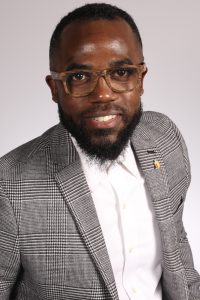
Dr. William Blake currently serves as the Assistant Director, Redesign for the District of Columbia Public Schools (DCPS). In this role, Dr. Blake ensures systems and structures are in place to support the development of the whole child. Over the span of 15 years in urban education, Dr. Blake has served as a Classroom Teacher, Assistant Principal and Principal and District-level Administrator. Dr. Blake believes that educators must strategically focus on closing the access gap for students furthest from opportunity, which is why he is dedicated to using social emotional learning in the district as a lever to create equitable outcomes for students, especially for students of color.
Dr. Blake earned his Bachelor of Science degree from Morgan State University. He later attended Trinity University to earn his Master’s in Curriculum in Instruction. Lastly, he earned his Doctorate Degree from the University of Maryland Eastern Shore. Dr. Blake is a devoted member Kappa Alpha Psi Fraternity, Inc
Keynote: Pandemic Leadership: Leveraging Equity To Ensure The Needs of The Whole Child
Description: Participants will explore the concept of antiracism education to understand how to support the whole child needs of diverse students. The speaker will provide practical strategies around trauma-informed pedagogy, antiracism tenants and brain science principles to equip participants with tools to address student needs in the era of a pandemic.
Session I: Leading with Equity: Do You See Me
Description: Participants will learn how to create inclusive spaces for their students to be seen and feel valued in their community. The session will build capacity on how to create learning environments that are culturally relevant to student populations. The session will be grounded in research from the Collaborative of Academic and Social Emotional Learning (CASEL) and evidence based equity principles. Participants will leave the session understanding how to apply an equity based framework to their daily practice as instructional practitioners.
Session II: Developing Authentic Student Relationships By Understanding the Art of the Brain
Description: Participants will engage in research around brain science. The session will elevate the skill and will of participants on how to build authentic relationships with students by understanding how they are scientifically wired. By the end of the session, participants will learn how to infuse trauma responsive strategies to address the needs of the whole child. Also, explore the whole child framework to understand how to apply it in diverse student settings.
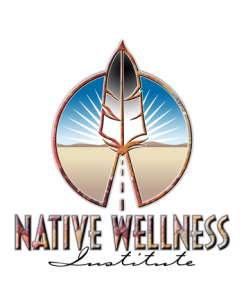
Native Wellness Institute
The Native Wellness Institute recognizes the great impacts of historical trauma and oppression on our people. We understand that historic trauma has caused current day trauma in our families and communities. This is evident by the high rates of substance abuse, violence, gossip, negativity, poverty and other destructive behaviors and conditions.
As Native people we have the strength and resiliency to move beyond and forward from the hurtful past and utilize what our ancestors left us: prayer, faith, songs, dances, ceremony, language and the perseverance to leave a positive legacy for our future generations.
The Native Wellness Institute exists to help create an awareness of where our negative behavior comes from, provide opportunities for growth and healing and most importantly to help our people move forward in a good way. We do this by providing training and technical assistance based in Native culture that promote the wellbeing of individuals, families, communities and places of work.
NWI lives and promotes the “Warrior’s Spirit” which means paying the greatest respect to our ancestors by being as positive, productive and proactive as we can, everyday of our lives.
Keynote: Using the Fire Within to Light Your Path
With much change and turmoil in recent years with a pandemic, fires, weather, war and more, Josh will use tribal teachings and stories to help bring calm, clarity and curiosity. The keynote will paint a picture and give tools and encouraging words as you plan to navigate another school year.
Session I: Learning Through Games, Experiences and Stories
Teaching and learning styles often don’t always align. How can we reach students that may learn differently than what we are comfortable teaching? How we can we connect to spark their interest and engagement? The fun and interactive games with purpose will provide an avenue for participants to explore and add to their tool kits!
Session II: The Importance of Being Trauma and Healing Informed Through An Indigenous Lens
We’ve learned a lot about trauma and the impact on academic success. This workshop will focus on the power of healing and how that impacts the physical, mental, emotional and spiritual well-being and academic success of students.
Presenter: Josh Cocker
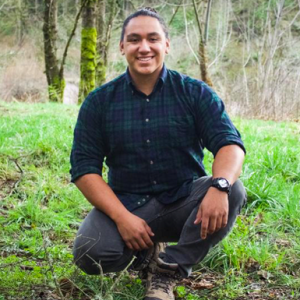 Josh is from the Kiowa, or Ka’igwu people in Oklahoma, and the kingdom of Tonga in the South Pacific. He is a certified outdoor instructor and facilitator, with an associate’s degree from Whitireia Polytechnic in Wellington, New Zealand. He has traveled extensively in the South Pacific for work and service including: Papua New Guinea, Tonga, and Australia. Most recently he has worked in the Tonto National Forest in Arizona as a trail walker, coordinator, and trainer for an outdoor behavioral healthcare foundation. From the age of 14, Josh was given a position in a military society of his tribe, and trained as a youth leader to preserve and share traditional knowledge with his generation. He seeks to honor and share that knowledge with everyone. “My hope is that I can help reintroduce people from all walks of life to our First Mother in all her wisdom and beauty. I hope to inspire healing, harmony, and connection through the use and passing of traditional skills in the outdoors.”
Josh is from the Kiowa, or Ka’igwu people in Oklahoma, and the kingdom of Tonga in the South Pacific. He is a certified outdoor instructor and facilitator, with an associate’s degree from Whitireia Polytechnic in Wellington, New Zealand. He has traveled extensively in the South Pacific for work and service including: Papua New Guinea, Tonga, and Australia. Most recently he has worked in the Tonto National Forest in Arizona as a trail walker, coordinator, and trainer for an outdoor behavioral healthcare foundation. From the age of 14, Josh was given a position in a military society of his tribe, and trained as a youth leader to preserve and share traditional knowledge with his generation. He seeks to honor and share that knowledge with everyone. “My hope is that I can help reintroduce people from all walks of life to our First Mother in all her wisdom and beauty. I hope to inspire healing, harmony, and connection through the use and passing of traditional skills in the outdoors.”
Keynote: Every Student has a voice: Using student survey data and voice to drive meaningful change for LGBTQ+ Youth in our schools
Description: Students have a great deal to share about their lives and their experiences in our schools. As leaders, it is our role to listen. In this session, participants will hear how data from LGBTQ+ students across Oregon became the motivation for empathy interviews with GSA and QSA student groups whose words provided direction for districts to drive positive change.
Breakout Session I: Serving LGBTQ+ Students – Actionable Steps to Respond to the needs
of students in our schools and communities
Description: School personnel, non-profit organizational partners, and community leaders each have a role in supporting LGBTQ+ youth in our schools and communities. Participants will engage in conversation and develop strategies on ways organizations can leverage state and local support and internal organizational policies and practices to create a culture of care and support for the needs of LGBTQ+ students.
Breakout Session II: LGBTQ+ Positive Work Environments – From hiring to retaining, actionable steps to respond to the needs of LGBTQ+ staff
Description: True inclusion in the workplace is when each person is valued, can be their full selves, and can thrive. In this session, participants will go deeper into the experience of LGBTQ+ staff, examine current organizational structures and challenges, and hear practical approaches to making an LGBTQ+ positive workplace.
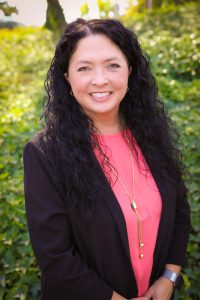 Shelly Reggiani
Shelly Reggiani
Senior Director of Learning, Equity and Communications for COSA
Shelly Reggiani, ED.D. is the Senior Director of Learning, Equity, and Communications for COSA and has served in public education for over 25 years.
She is dedicated to the success of each student and the growth and development of staff. In her previous roles, Reggiani has supported federal Title programs, Talented and Gifted Education, Bilingual Education, Counseling and Social Services, Title IX coordination, culturally specific community engagement, inclusion and equity initiatives, educator professional development, and communications. Serving those who are members of historically underserved communities is a passion for Shelly and is what she has dedicated as the focus of her career.
Reggiani earned her Bachelor’s and Masters from Oregon State University and her Educational Doctorate from George Fox University. She was recognized with the AASA Women in School Leadership Award in 2020. Reggiani believes that education has the power to open doors, transform lives, and uplift individuals, and their communities.
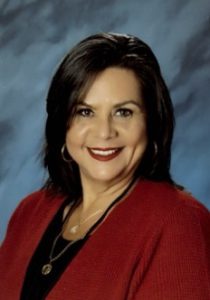 Carmen Gelman
Carmen Gelman
Director of Professional Learning for COSA
Carmen Gelman was born and raised in Southern California (she also spent part of her elementary years in Mexico) and was part of an education system that pushed her out of the system and to the streets of South Central. As a 29-year-old single mother of three living in Eugene, Carmen found herself working fulltime and going to college not knowing that one day she would find herself leading change in schools and communities specific to addressing issues of diversity, equity, and inclusion. Carmen has had a significant, positive impact on student outcomes and is recognized throughout the state as a school change agent with expertise in culturally relevant and sustaining practices and unwavering commitment to student and family voice. Carmen is the Director of Professional Learning with COSA. Prior to moving into her new role at COSA, Carmen was the principal at Milwaukie High and was a school administrator in both the Beaverton and Springfield School Districts. Prior to moving into her role in Milwaukie, Carmen worked with schools and districts throughout California and in Oregon as the school partnership director and consultant at Inflexion. Carmen was at Inflexion for three years. In addition, Carmen has served on several boards, is the recipient of the Distinguished Latino Educator award through OALA, the Pearl M. Hill Award, celebrating freedom and the Human Rights Alliance award through SAFER and the 2021 COSA President’s Award for Excellence in Education.
ISLA from the University of Oregon
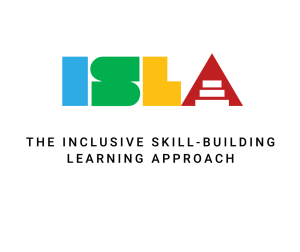
ISLA Model
The Inclusive Skill-building Learning Approach (ISLA) is an intervention that has been developed as an alternative to exclusionary discipline by researchers within the College of Education at the University of Oregon. ISLA is a Tier 1 universal intervention that fits within existing school-wide behavioral frameworks and is grounded in positive, preventative classroom strategies for all students. It aims to promote positive student-teacher relationships, improve student behavior, and minimize loss of instructional time due to exclusionary discipline.
The ISLA model includes both school-wide systems and classroom-based instructional practices to support implementation and skill-building. ISLA is a multi-layered approach that begins with classroom prevention first and layers on additional in-class supports to reduce the number of students being sent out of the classroom for low level behaviors, so that out-of-class supports are reserved for the students with more significant behavioral challenges. Preliminary results indicate that ISLA holds promise as an effective intervention for reducing use of exclusionary discipline, including in-school suspension, out-of-school suspension, and expulsion (Nese et al., 2020).
The research reported here was supported by the Institute of Education Sciences, U.S. Department of Education, through Grant R305A180006 to University of Oregon. The opinions expressed are those of the authors and do not represent views of the Institute or the U.S. Department of Education.
Keynote: Impact of Exclusionary Discipline Practices
Decades of research have shown that exclusionary discipline practices negatively impact student and teacher wellbeing, disproportionately impact marginalized and minoritized students, and lead to a host of detrimental life outcomes. There is a need for preventative and sustainable supports, with a direct focus on dismantling systems that have historically excluded our most impacted communities. Participants will consider their role in disrupting the school to prison pipeline, gain awareness of the harmful impacts of exclusionary discipline practices in schools, and learn about the ISLA model as a restorative, instructional alternative.
Session I: Understanding the Inclusive Skill Building Learning Approach
Participants will understand the benefits of the ISLA model for staff and students. This session will help participants how ISLA fits within multi-tiered systems of support. The session will be grounded in implementation science and centering equity into tiered systems of support. Participants will leave with next steps to add to their implementation plan.
Session II: Engaging in instructional and restorative consequences
Participants will learn about instructional supports to provide students when sent out of the class, with an emphasis on skill-building, perspective, and classroom re-entry process. This session will provide participants understanding of the rationale and goal of the ISLA Process and plenty of practice opportunities to familiarize with the ISLA process.
Danielle Triplett
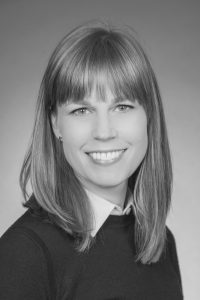 Danielle Triplett, M.Ed., is a Senior Research Assistant at the University of Oregon. She started her career in education as a middle school language arts teacher in the Portland, Oregon metropolitan area. Now, as a researcher, Ms. Triplett applies her on the ground experience in the classroom and at the district-level to shape and inform research related to making schools intentionally inviting, positive environments for students and staff. Her work has contributed to the development of training materials, tools, and interventions being used in schools throughout the country including materials for implementation that focus on systems, evidence-based practices, and the use of data specifically at the secondary level. Most recently, Ms. Triplett’s research focuses on developing an instructional alternative to exclusionary discipline that substantially changes why a student is removed from the classroom, what happens when a student is sent to the office, and what happens when the student returns to the classroom.
Danielle Triplett, M.Ed., is a Senior Research Assistant at the University of Oregon. She started her career in education as a middle school language arts teacher in the Portland, Oregon metropolitan area. Now, as a researcher, Ms. Triplett applies her on the ground experience in the classroom and at the district-level to shape and inform research related to making schools intentionally inviting, positive environments for students and staff. Her work has contributed to the development of training materials, tools, and interventions being used in schools throughout the country including materials for implementation that focus on systems, evidence-based practices, and the use of data specifically at the secondary level. Most recently, Ms. Triplett’s research focuses on developing an instructional alternative to exclusionary discipline that substantially changes why a student is removed from the classroom, what happens when a student is sent to the office, and what happens when the student returns to the classroom.
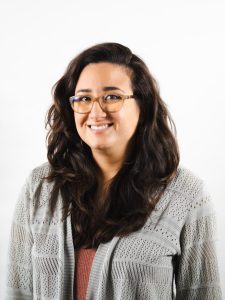 Maria Santiago-Rosario
Maria Santiago-Rosario
Maria Santiago-Rosario Ph.D.,NCSP, is a Postdoctoral Research Associate at Educational and Community Supports, a research unit at the University of Oregon. She brings a great deal of clinical expertise providing direct services to school- and college-age students with identified learning and mental health disabilities, and training of teachers and administrators on behavior support plans that increase access to individualized instruction. Her research focuses on teacher expectations for student outcomes, racial equity in school discipline, and measuring culturally responsive classroom management. Her expertise is in PBIS and system-level change in schools, having served as a school and district coach for diverse districts across different states. She is also an implementation partner providing technical assistance to school districts and school-level teams on effective classroom behavior management and strategic planning for school discipline equity through the OSEP-funded National TA Center on PBIS.

